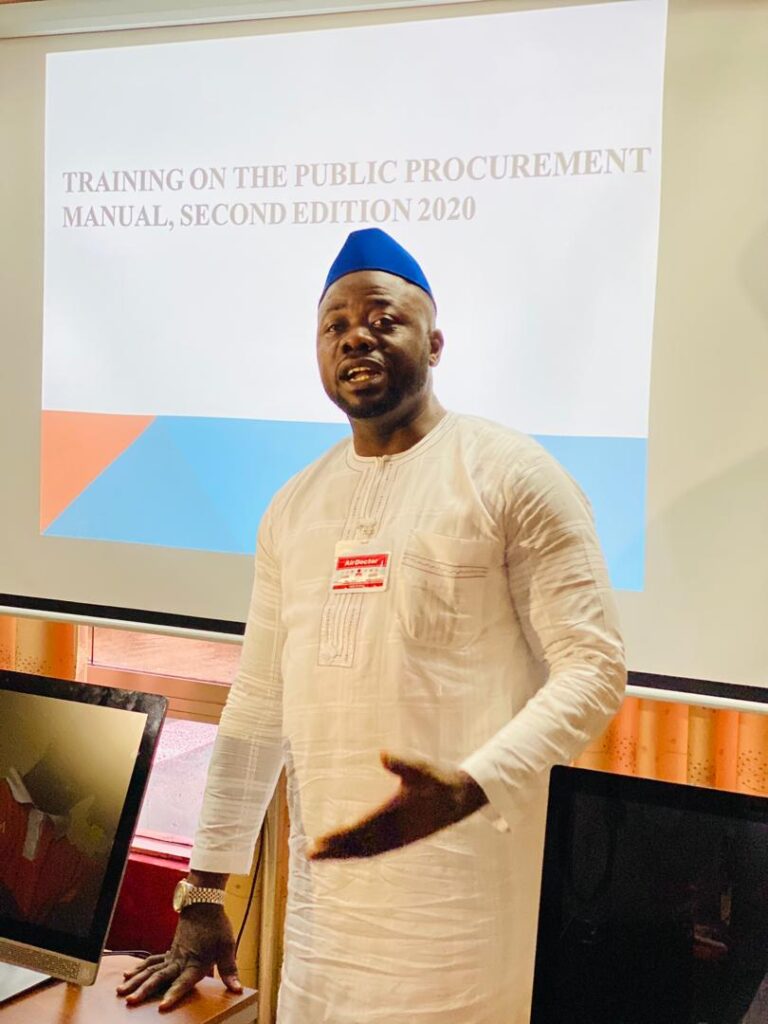In a bid to strengthen transparency in the procurement sector, activities and processes of procurement will go digital. The pronouncement was made by head of National Public Procurement Authority (NPPA) the previous Friday in a conference in Freetown.
Services of an IT expert would be sought through advertisement for the development of a software to realise the digitalisation process.
The new initiative would bring no change in the procurement activities as only what the law says would be done. Training will be conducted for procurement officers and businessmen so that they would know what to do. The digitalisation would ensure the migration from a manual system of procurement to an electronic one. It is hoped that electronic procurement would ease the work of procurement officers.
Laying the springboard for the migration, a Functional Requirement Specifications (FRS) document has been prepared. The FRS specifies what would appear in the Software to be created by a service provider. It says the identity of vendors in real time will be identified and can make available data in specified folder in an automated manner through a computerised procurement system.
It also notes that procurement institutions would be defined in the e-GP system and that government users would be created and associated with procurement entities. Procurement committee would be established in each procuring entity and security would be maintained by encryption and digital signatures.
Price norms would also be created in the system to serve as guides and baselines for requisitions. The digital system would also lead to the creation, approval and revision of annual procurement plans including pre-budget and post-budget.
Speaking during the conference, Ibrahim Brima Swarray CEO National Public Procurement Authority (NPPA), told journalists that the work would commence this month and that firms of high reputation would bid for the development of the software.
He said the digitalisation of the procurement process would be a whole network that would be created.
“If a bid is offered to you, we will know from the system, if you pay for the bid, we will know from the system and if a supplier is registered, we will also know from the system,” the NPPA Chief stressed.
When the system should have been installed, NPPA Chief said, the whole business of procurement would come back to NPPA.
“When we go electronic, nobody deletes anything without our approval. When we advertise bids, those bids can only open on the day of opening,” he assured. With digitalisation, a new hope for transparency in the procurement profession would be restored. The clamour for transparency in the world of procurement, Brima Swarray had been a loud one.
“People will always say procurement processes are not transparent even if the correct thing is done,” he said. NPPA Chief also assured that speed would the order of the day under the new system, and the problem of missing documents would be a thing of the past. The e-GP system, he went on, would also ease the work of auditors in carrying out their annual or special audit exercises.
“The auditors would now audit from the e-GP system,” he said.
NPPA Chief also told journalists that the e-GP would not only be for NPPA, but also for other key state institutions.
“NPPA will merge with other institutions such as NASSIT (National Social Security and Insurance Trust, National Revenue Authority (NRA) and Bank of Sierra Leone,” he said.
He assured Sierra Leoneans that with such technology, it would be difficult for any person to go into the system.
NPPA Chief also assured that the abnormalities and the many problems people grumble with in the world of procurement would no longer occur. He also mentioned that the system would go across the country, and it would be highly secured. Once that was achieved, he went on, the level of transparency in procurement processes is quantified to be between 300-400 per cent.
“When you log in and send documents to us, you no longer have control because you would not take them off from the system,” he stressed. Gone are the days, the NPPA Chief, said when procurement was done without the paper trail with the computerised system.
It is also hoped that when the new system is implemented, processes and procedures of procurement would be examined from beginning to end. Fears of immediate changes in the world of procurement under the system were also allayed by NPPA Chief.
“Nothing changes in procurement operations under the proposed new system; it is what is into the law that we will bring into reality,” he assured. He said they still had the opportunity to request for tender, open bids make price quotations and sole sourcing among others.
“We only get the electronic version of what is in the law,” he emphasised.
NPPA Chief also made reference to the manual which he recently developed for procurement officers.
The manual, he said, is one of those activities that have tremendously reduced anomalies in procurement activities. The chairman of the occasion…also hammered home the need for procurement officers to stick to what is in the law.
He also expressed his admiration for the digitalisation initiative adding that the wrong things were done when procurement processes and activities were done manually. Alluding to a national competitive bidding issued by NRA, the chairman explained some of the wrong things that were done when the procurement processes were done manually.
The National Competitive, he said, should be within a period of four weeks, and six weeks for international competitive bidding. These errors he said go a long way to justify the need for the development of the software so that a solid framework would be created for the rectification of wrongs done in the past.
“The advantage of computerisation is that you are kept within the law,” he stressed.
